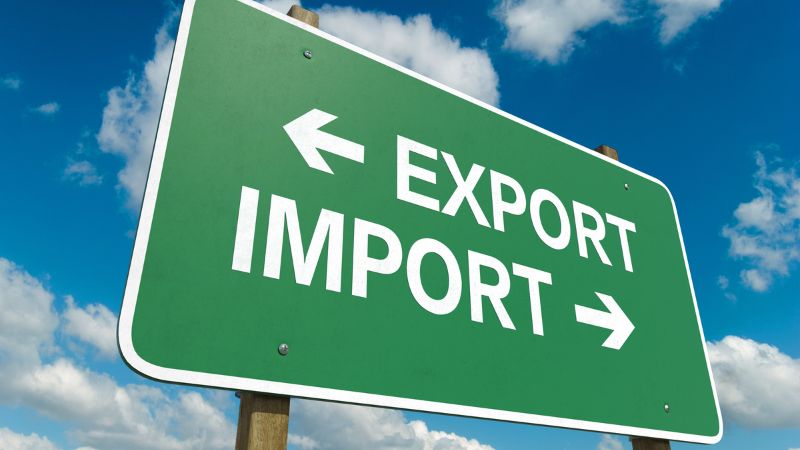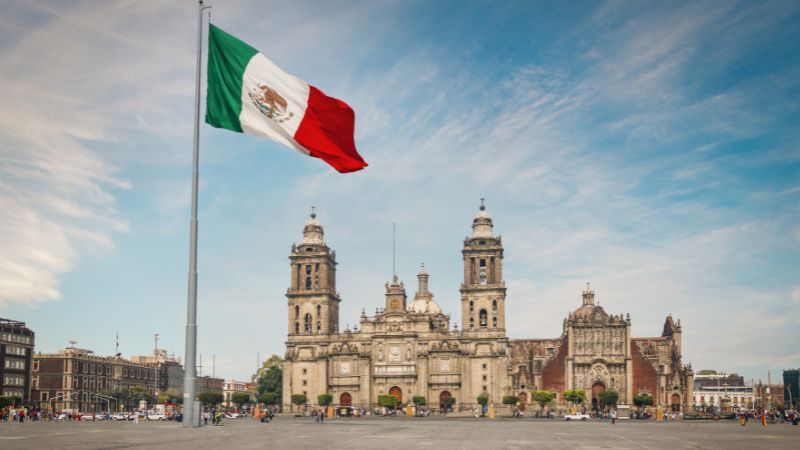If you are planning to establish a business in Mexico or are planning to move your operation to Mexico, then you need to learn about Mexico’s customs regulations.
Thanks to its closeness to the US and its size, Mexico attracts many business owners and corporations to move their production to Mexico. Learn more about import and export regulations in Mexico and the effects of nearshoring.
In this article, we are going to give a guide to customs regulations in Mexico.
Table of Contents
Export And Import Regulations In Mexico
The North American Free Trade Agreement fiercely increased trade, especially in the manufacturing industry between the three NAFTA nations, Mexico, the US, and Canada in 1993.
NAFTA was updated and currently, the USMCA is the active treaty between North American countries.

The IMMEX program, previously known as the “Maquiladora program” is an instrument to promote exports.
Companies can temporarily import merchandise and then carry out an industrial or service process for the manufacturing, transformation, or repair and then export, deferring the payment of the Impuesto General de Importación, the Impuesto al Valor Agregado (IVA) and, if applicable, the Cuotas Compensatorias.
While Importing Goods into Mexico
- The importers need to have an order which is a Pedimento de importación from the Secretaria de Economía. That order consists of the bill of lading, commercial invoice, Mexican product safety regulation, etc.
- You need to be registered in the SAT and Hacienda and also be registered on the Padrón de Importadores, which is mandatory for all importers.
- The tax rate on imports in Mexico starts from 0% to 15% based on the company’s location, the work they do, and the product that is being imported. Siicex Caaarem will help you identify import and export taxes in Mexico.
- Companies importing products like healthcare products and medical devices are required to register with the Mexico Secretaria de Salud.
While Exporting Goods from Mexico
- Companies looking for exporting goods from Mexico need to register with the Registro Federal de Contribuyentes which will get you a tax registration number (RFC in Mexico).
- The exporters have to prepare a customs declaration including the origin of the goods, global and unit value, components of items, custom fees, export agent, etc.
- Products such as antiques, hydrocarbons, crude oil products, etc are prohibited for export in Mexico.
- The exporters must abide by the Ley de Impuestos Generales de Importación y Exportación and also stick to the country’s rules and regulations in Mexico.
- Some products need a sectorial export permit. Examples: glass, tequila, gold, silver, wood, textiles, etc.
ISEB is registered as an exporter and our sourcing agents in Mexico have experience in different customs issues and can provide insight on your sourcing from Mexico project.
ISEB also has a PROSEC or sectorial export permit for glass. This permit includes blown glass in Mexico.
The US-Mexico Joint Customs Clearance Process
The US and Mexico have a very strong trade relationship on faith and partnership. One such example of their partnership is the ‘Declaration of Principles for a Bilateral Strategic Plan‘. This treaty was signed between both countries in March 2014.

On 15th October 2015, the USA and Mexico made their alliance official by signing a Pre-customs clearance memorandum by commencing a joint customs clearance pilot project in Mexico City.
The key elements of the project were:
- The air cargo at Laredo Texas Airport will be the hub of the automotive, electronic, and aerospace industries of the merchandise imported from eight Mexican airports.
- The Mexican agricultural products are exported to the USA at Tijuana customs.
- Computers and electronic products that are in the Foxconn Company Facility in Mexico are imported to the USA.
A single inspection is carried out by the Mexican and the US Customs and Border Protection employees for goods coming and going to the United States of America.
This procedure includes a documentation review along with the goods. This process is not very time-consuming and also it saves logistics costs.
Technology and skills are different in the US and Mexico customs which is a challenge. To make this alliance work, efforts should be made from both sides.
Documentation Required For Customs Clearance In Mexico
Companies who are looking to import goods to Mexico need to register with the Registro Federal de Contribuyentes, maintained by the SAT. This is very important for you if you are planning to trade in Mexico.
We have listed all the documentation needed for customs clearance in Mexico.
Documents Required For Import in Mexico
- E-value certificate or COVE contains information about the invoice.
- Bill of lading or transport document.
- Documents showing consent with any non-tariff regulation.
- Documents showing the origin of goods.
- A certificate proving the weight of the goods to be imported in bulk from the sea by SAT-authorised certifying companies.
- For goods that pose some kind of risk to public health or national security, information on how to control and move the goods must be attached to them.
Documents Required For Export in Mexico
- E-Value certificate or COVE containing information about the invoice.
- Bill of lading or transport document.
- Packing list.
- The customs documents and certificates prove the quality and quantity of the goods.
For custom clearance in Mexico, you must have all the documents above. Otherwise, you will be facing issues while trading.
Mexico International Treaties
Mexico has signed various treaties with countries around the globe. Mexico has signed 12 International treaties and has more commercial cooperation agreements (and more to come).

These include the USMCA with the US and Canada, FTA EU-MX with the European Union, FTA with the Northern Triangle that is Guatemala, Honduras, and El Salvador, to name some.
In this section, we are going to discuss some important international treaties signed by Mexico. Something to consider, Mexico has more cooperation agreements with more countries, we’re reviewing the Free Trade Agreements.
USMCA
This treaty is the most important treaty for Mexico. Mexico signed this agreement with the US and Canada to improve trade relations between North American countries.
Some changes were stricter origin verification for the textile, chemical, and automotive industries.
According to this treaty, there will be no customs duties on digital products.
Central America FTA
Another crucial trade agreement for Mexico is the Central America FTA. This treaty was signed between Mexico, Costa Rica, El Salvador, Guatemala, Honduras, and Nicaragua. It was signed in San Salvador on 22nd November 2011. This treaty tries to stabilize commercial relations and promotes a larger and safer market between countries.
FTA EU-MX
The FTA EU-MX is an international agreement signed between Mexico and the European Union. It was signed in the year 2000.
The updated version consists of exporting more agricultural and industrial products, remodeling digital commerce and telecommunication, and protecting products such as coffee, and handcrafted articles.
International Treaty Between the Pacific Alliance
Mexico signed an international treaty with Peru, Columbia, and Chile. These four countries constitute 38% of Latin America’s GDP. So, this trade agreement turns out to be very beneficial. By 2010, this alliance had exported about $445 billion.
Conclusion | Guide to Customs Regulations in Mexico
In the above article, we discussed customs regulations in Mexico. Mexico is a very important country in matters of trade. If you are planning to shift your production to Mexico, then you should everything about import and export regulations in Mexico.
Do you still have questions and doubts? We discussed customs regulations in Mexico and try our best to make it chewable! But if you need more information about a certain topic please leave a comment on this article or send us an email.
